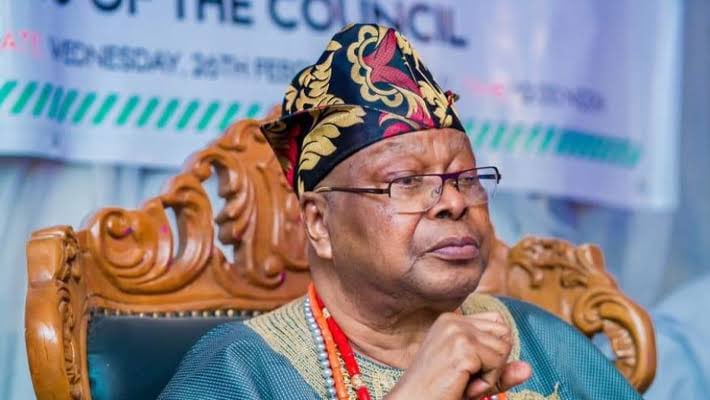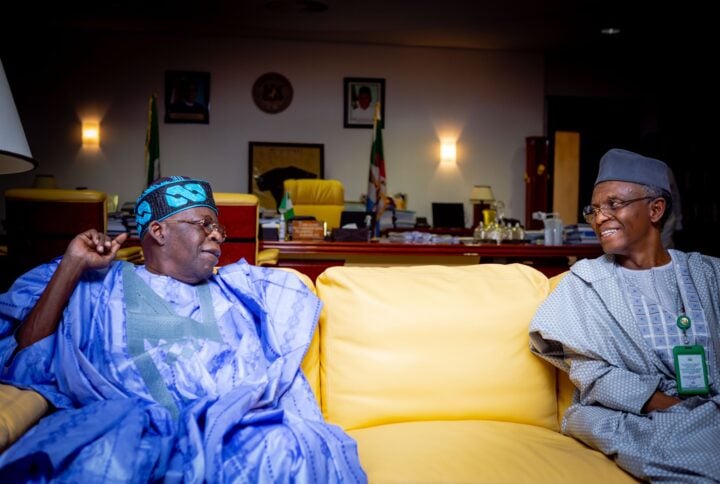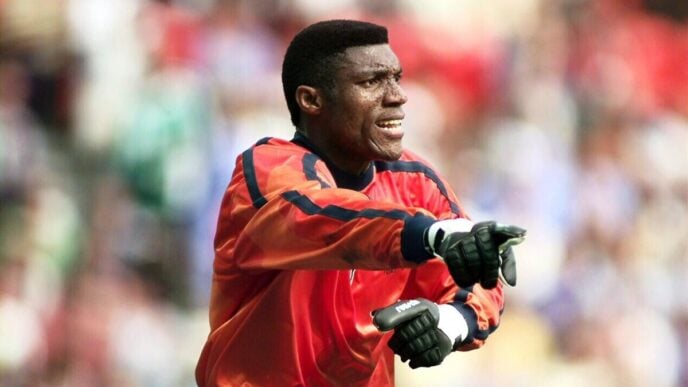Sikiru Adetona, the late Awujale of Ijebu
BY OYEKOLADE SODIQ OYESANYA
In the wake of the peaceful passing and dignified burial of Ọba Dr. Sikiru Kayode Adetona, the Awujale and Paramount Ruler of Ijebuland, a cacophony of opinions has arisen, mostly uninformed, many dangerously provocative, and some outright deceptive. That a monarch of such epochal eminence was honoured in death in line with his religious convictions, specifically Islamic rites, ought to have been a testament to the maturity of our pluralistic society and the advancement of human dignity. Instead, it has become fodder for revisionists, traditional purists, and cultural absolutists who insist on seeing modernity and indigenous tradition as antagonists in a zero-sum game.
Undoubtedly, it must be recognised that, and stated unequivocally, that Awujale was buried. He was buried with nobility, with honour, and with the full dignity of his office, in accordance with the expressed wishes he enshrined both privately and publicly, wishes grounded not in rebellion but in religious fidelity, not in cultural betrayal but in constitutional liberty.
To those who deny this burial occurred, or who insinuate that the burial rites were incomplete, unrecognised or invalidated due to the absence of so-called “traditional rituals”, one must ask: what constitutes burial? Is it a performance of esoteric rites behind closed forest doors that affirms a king’s departure? Or is it the solemn, sacred interment of a soul guided by faith, consent, and communal reverence?
We must resist the attempt to reduce Yoruba kingship to an animistic fossil locked in the museum of cultural puritanism. The Yoruba world, though historically rooted in rich traditions just like other cultural entities, is not static. It is dynamic, evolving, and the Awujale stood as a luminous example of this evolution. A devout Muslim and a custodian of culture, Ọba Adetona proved that one could be both monarch and Muslim, traditional and transcendent, custodian and reformer. To present his burial as a cultural aberration is to misread history, distort jurisprudence, and dishonour the very man whose progressive spirit we claim to revere.
Advertisement
The central error of the counter-narrative, those who argue that an “Oba cannot die a religious death”, lies in the false dichotomy they construct between Isese and Islam or Christianity. This binary opposition is historically inaccurate and intellectually lazy. There exists no monolithic Yoruba tradition on royal burials, and the constitution, both of the land and of reason, cannot be held hostage by primordial absolutism.
Furthermore, to ignore the express provisions of religious freedom, entrenched in Section 38 of the 1999 Constitution (as amended), is not only unjust, it is unlawful. When a reigning monarch, in full possession of mental clarity, declares his desire to be buried in line with his religious principles, it is not tradition that is violated when this wish is honoured, it is tradition that evolves.
And let us not forget: Islam has a burial rite. A profoundly spiritual and time-honoured rite. It is not empty. It is not alien. It is not borrowed. It is not modernity’s enemy. It is a part of the rich tapestry of Yoruba Muslim life, a tapestry that Awujale himself wove with great care for more than six decades of his reign.
Advertisement
Those who brandish the comments of Justice Akinsinde and others of similar persuasion on traditional burials as though they constitute inviolable truths fundamentally misconstrue both the role of the judiciary and the limited scope of such remarks. The law recognises the existence of customary authority, yes, but it does not mandate religious conformity to animist rites as a condition of kingship. To do so would be to enshrine discrimination under the guise of culture, an irony too deep to ignore in a supposedly enlightened era.
One must also critically examine the hypocrisy of certain elite Muslims, who, perhaps out of misplaced cultural solidarity or fear of social backlash, have joined the chorus of critics. These individuals are either ignorant of Islamic burial principles, or they have chosen to sacrifice theological clarity on the altar of ethnic populism. In so doing, they betray not only their faith but also the very monarch who courageously lived and died by it.
This is not to dismiss the value of Yoruba customs. Indeed, culture is a people’s soul. But when culture is weaponised against individual agency, when tradition becomes a whip with which to lash dissenters into conformity, it ceases to be culture, it becomes tyranny in tribal robes.
Ọba Adetona’s burial should serve as a case study in religious freedom, cultural negotiation, and leadership by consent, not as a cause for cultural witch-hunting. If anything, the reactions from a section of the public reveal not merely a cultural confusion, but a deep intellectual slumber, a refusal to engage with the pluralities of the modern African identity.
Advertisement
To such minds, we offer not disdain but education. Not invective but insight. Tradition and modernity are not enemies, they are co-travellers on the road of human civilisation. What is required is not cultural rigidity, but philosophical elasticity, not nostalgia for customs past, but an honest reckoning with the present.
In his life, Ọba Dr. Sikiru Kayode Adetona GCON Ọgbàgbà II modernised the institution of kingship without destroying its essence. In his death, he has bequeathed to us a challenge: Will you uphold the sacred dignity of human choice? Or will you enforce the dead weight of cultural tyranny under the pretence of loyalty?
Let the living ponder this! Let the dead rest in peace! Let the truth awaken us all!
Oyesanya writes from department of religious studies, college of humanities, Tai Solarin University of Education, Ogun state and can be reached via [email protected]
Advertisement
Views expressed by contributors are strictly personal and not of TheCable.







